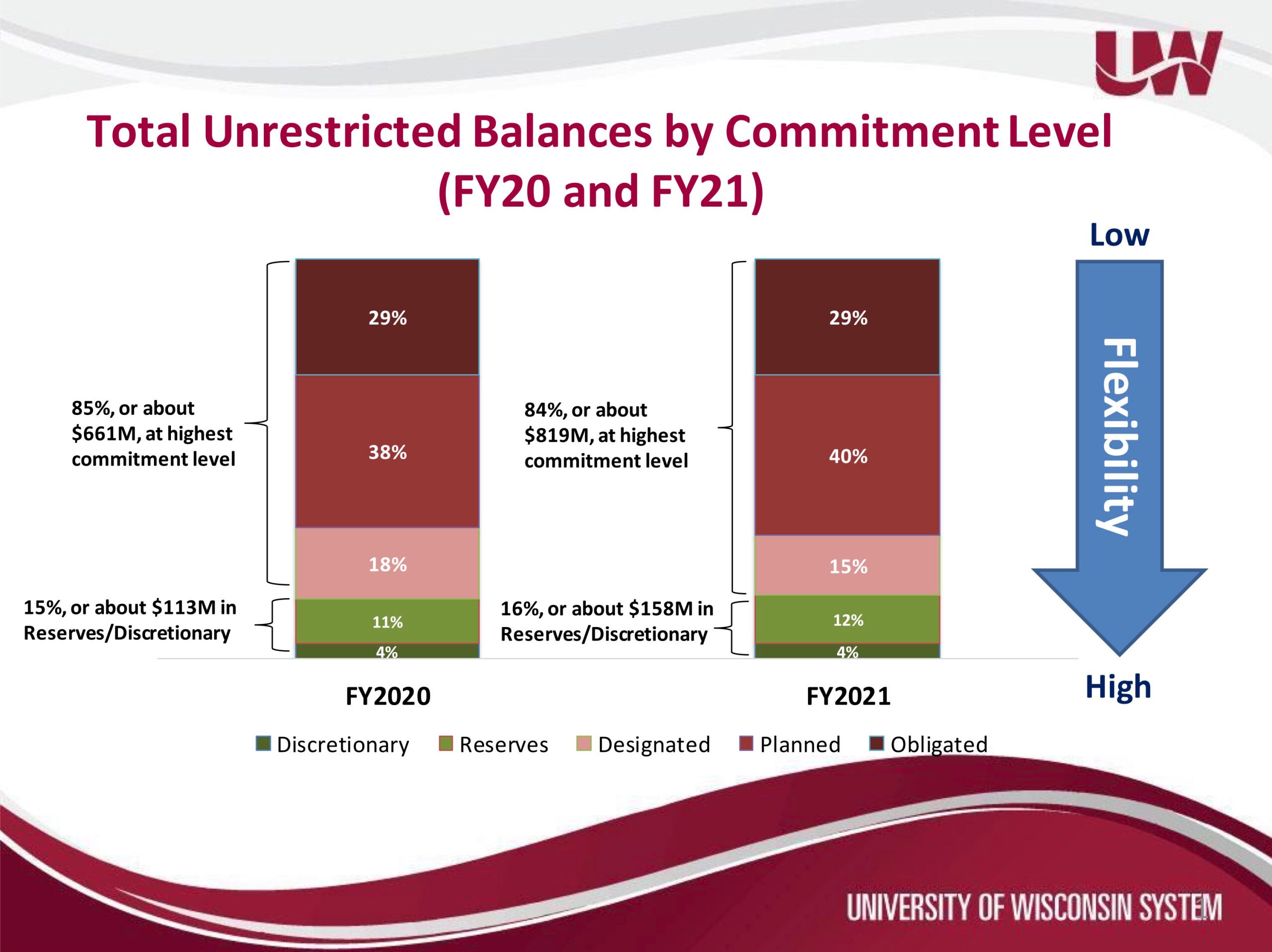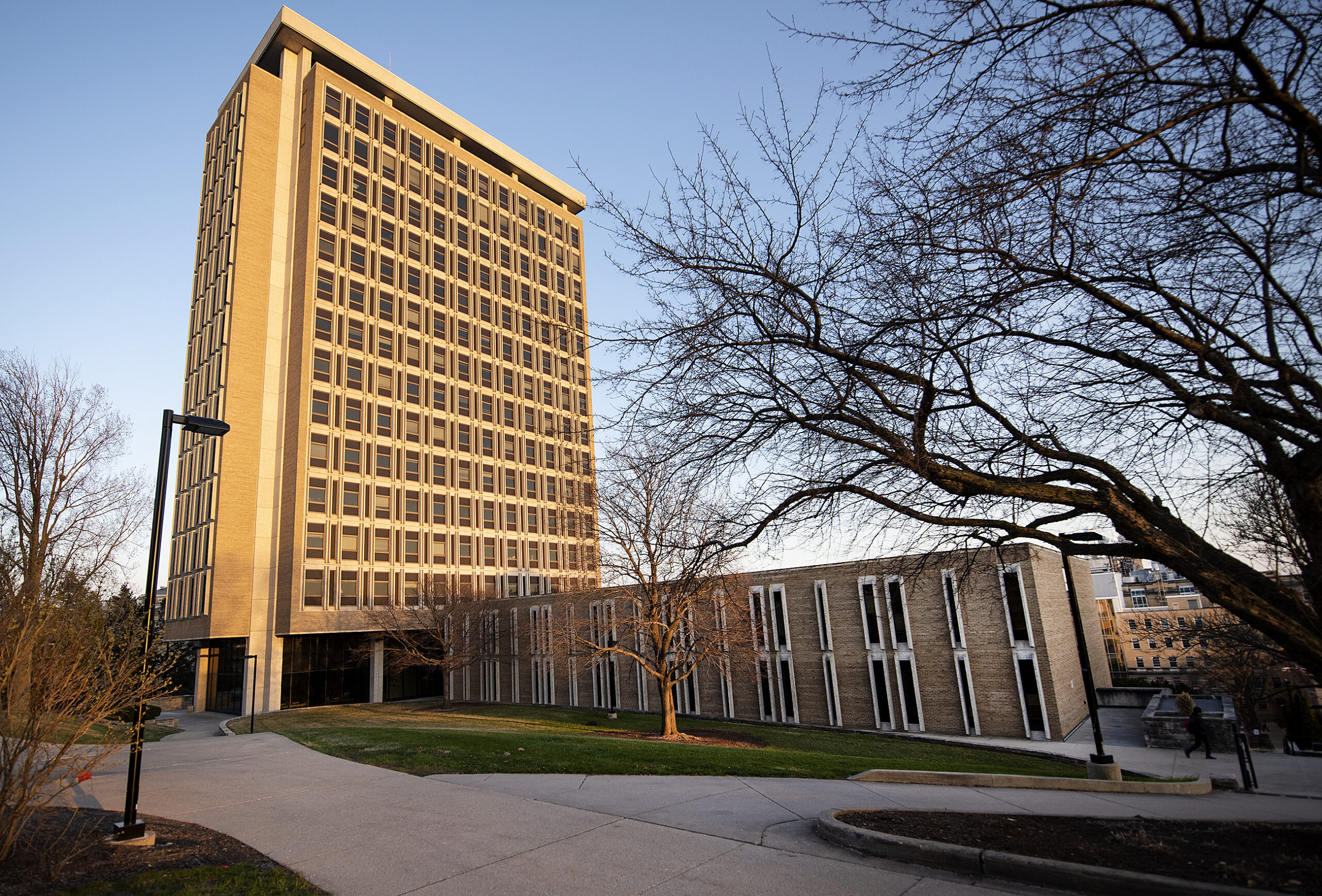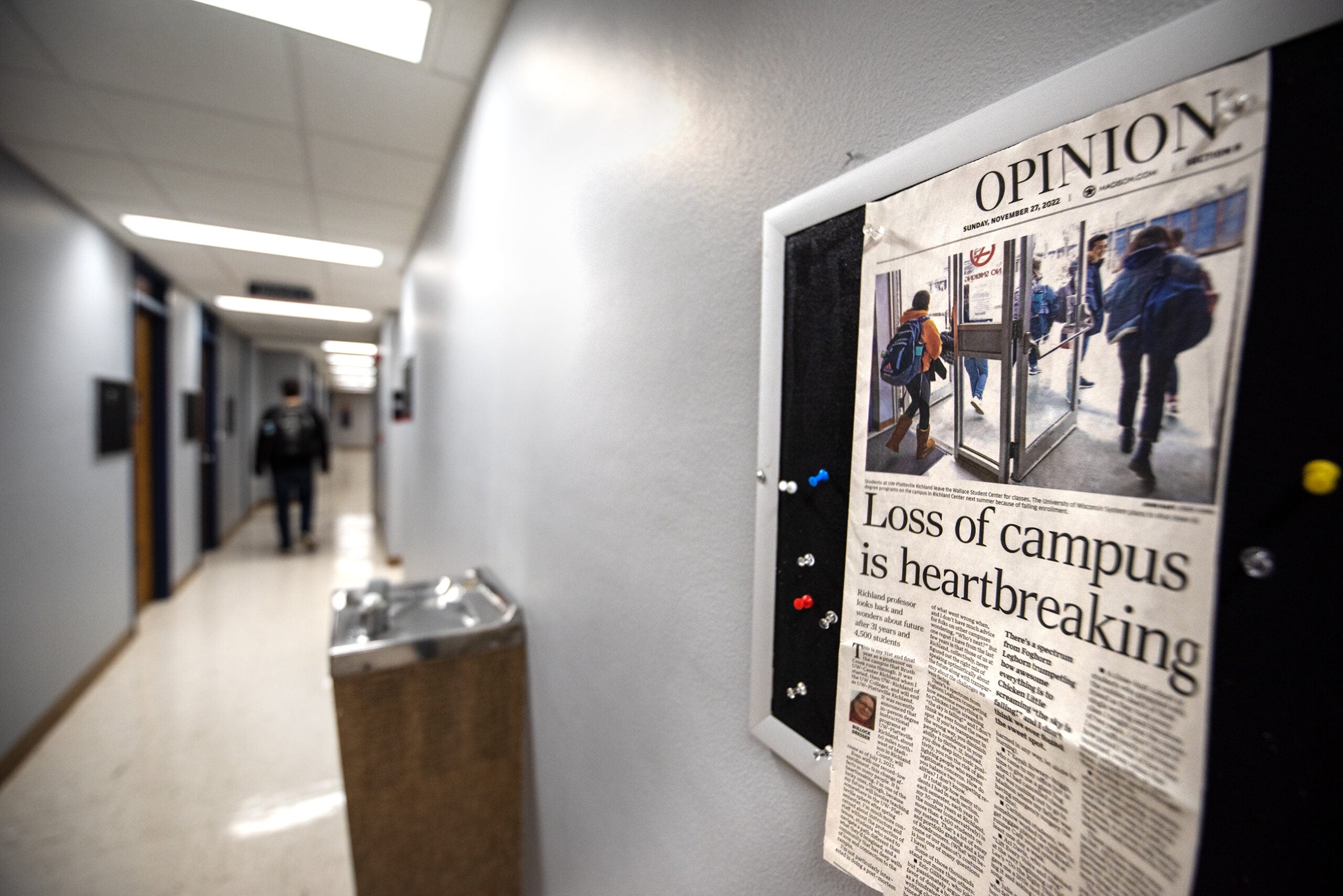Preliminary budget numbers show the University of Wisconsin System’s unrestricted fund balances topped $1 billion at the end of June. It’s the first time those funds have hit the billion dollar mark since state lawmakers railed against tuition reserves in 2013.
According to data provided to Wisconsin Public Radio, the UW System estimates its total unrestricted program revenue balances grew this year by around 13 percent to a total of $1.08 billion. Campus and system officials have repeatedly stressed that despite the term “unrestricted,” the vast majority of the reserves have already been committed to various projects.
In 2013, the UW System’s unrestricted balances were nearly $1.1 billion. When adjusted for inflation, the total from nearly 10 years ago would be $1.39 billion today, according to the UW System Administration office.
News with a little more humanity
WPR’s “Wisconsin Today” newsletter keeps you connected to the state you love without feeling overwhelmed. No paywall. No agenda. No corporate filter.
Republican members of the state Legislature were incensed in 2013 when a memo from the nonpartisan Legislative Fiscal Bureau showed $648 million in reserves of unspent tuition revenues following five years of back-to-back 5.5 percent tuition increases set by the UW Board of Regents.
Even former Democratic State Representative Peter Barca, who is now Secretary of the Wisconsin Department of Revenue, joined the chorus of lawmakers demanding a two-year freeze on new tuition increases.
The tuition freeze was mandated in the 2015-17 state budget, which ultimately cut $250 million in state funding to the UW System. It wasn’t until 2021 when lawmakers gave tuition setting authority back to the UW System Board of Regents.
Still, former UW System President Tommy Thompson chose not to seek a tuition increase in his system budget after being warned not to by Republican leaders in the Legislature. The system’s current president, Jay Rothman, also decided against recommending a tuition increase to regents this year.
As for the current unrestricted balances reaching the $1 billion mark, Jeff Buhrandt, interim vice president for University Relations, told WPR things are different than they were in 2013.
“Ten years ago, the Legislature and, I think, the public in general were pretty outraged to find out that funds had grown and there was not a plan for how those funds were to be spent,” said Buhrandt.
Following that outrage and subsequent tuition freeze mandates, the UW System began breaking down its balance data to differentiate between restricted and unrestricted funds. Regents also mandated campuses provide detailed spending plans for reserves that exceed 12 percent of their overall expenditures.

“We’re able to provide so much more detail in the level of commitment,” said Buhrandt. “For example, over 80 percent of these dollars are committed to be spent. The checks just haven’t been written yet. We weren’t able to demonstrate that 10 years ago.”
And while the total of unrestricted reserves has grown, preliminary UW System data at the end of June show tuition balances have declined by more than 10 percent, or $34.9 million, from the previous year. Total tuition balances at the end of the 2020-21 academic year were $333.2 million. That marked a decline of more than 48 percent from 2013, when lawmakers first sounded the alarm.
Tuition reserves are among the least restricted funds at UW System, but in recent years, they’ve dropped to precarious levels at some campuses like UW-Oshkosh, UW-Whitewater and UW-Stout. That’s driven staff cuts at campuses like UW-Stout, UW-Stevens Point and UW-Oshkosh.
Buhrandt said this year, tuition fund balances are “pretty responsible campus to campus.” He said campuses often dip into tuition reserves before other reserves because they’re among the most flexible funds.
“Enrollment is down a tick over the last couple of years,” said Buhrandt. “So, the combination of those two things probably lead us to a situation where the tuition fund balance is a little lower this year than last.”
The UW System’s budget office will continue to work on the fund balances data this summer. A final report will be presented to regents in October.
Editor’s note: Wisconsin Public Radio is a service of the University of Wisconsin-Madison and the Wisconsin Educational Communications Board.
Wisconsin Public Radio, © Copyright 2025, Board of Regents of the University of Wisconsin System and Wisconsin Educational Communications Board.






